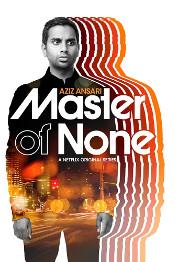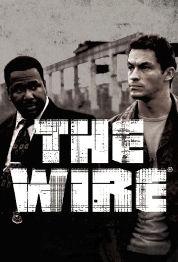Loss Completes France's DishonorBy JERÉ LONGMANJOHANNESBURG : France exited in disgrace from the World Cup on Tuesday with no victories and little sympathy for a team that infamously used an intentional handball to get into the tournament and self-destructed on the way out.
The French team's petulant image did not gain much redemption in its final match, a 2-1 defeat to host South Africa in Bloemfontein, south of here. Les Bleus, as the French team is known, played the final 65-plus minutes a man short after midfielder Yoann Gourcuff was ejected for elbowing an opponent in the head.
Afterward, the eccentric and departing French coach, Raymond Domenech, declined to shake hands with his South African counterpart, Carlos Alberto Parreira. Apparently, Parreira said, the snub was related to his criticism of the way France had qualified for the World Cup: the illegal handling of the ball by Thierry Henry, which was unseen by the referee and led to the decisive goal in a playoff victory against Ireland in November.
Tuesday's defeat completed a stunning implosion for France, which was the 1998 World Cup champion and 2006 runner-up but lost two of its matches here and tied in the other. On Thursday the star forward Nicolas Anelka profanely insulted Domenech at halftime of a loss to Mexico, then was expelled from the team. In protest, France's players skipped practice Sunday, drawing widespread criticism from French politicians and in the news media.
Domenech declined to answer questions Tuesday about the snub of Parreira or his team's crisis, in keeping with a sometimes inscrutable personality that has led him to choose or discard some players based in part on their astrological signs.
"We are not from the same world," Domenech, 58, told reporters, referring to the team and its crisis.
France's final World Cup match was played hours after its sports minister, Roselyne Bachelot, said she reduced some players to tears during a rebuke of the team Monday night. During that meeting, Bachelot said, she accused the players of tarnishing France's image and called their behavior a "moral disaster."
Philippe Tétart, a French sports historian, said that France's players had acted like spoiled celebrities instead of potential champions, creating damage beyond the team's image.
"It created a social injury," Tétart said. "The positive hero figure has been dethroned. The players have ruined the image of responsible sporting personalities, who set an example."
While watching Tuesday's match in Paris on a large screen near the Eiffel Tower, some French fans booed their team in disgust, The Associated Press reported.
Outside of Paris, in Neuilly-sur-Seine, Romain Souverain, 30, a logistics worker, said, "We didn't deserve to qualify, so we didn't deserve to win."
Other fans there criticized France's uninspired, individualist, directionless play at the World Cup, which produced one goal in three matches.
"We've hit rock bottom," said Vincent Colin, 32, who runs a company that makes custom shirts.
Not everyone, though, will be sad to see France depart early. Many may view its exit as just punishment, given the way the French qualified for the World Cup. "The Irish are probably happy tonight," said Boudewijn Zenden, a Dutch soccer player who is a television commentator for the tournament.
Even before Tuesday's match, some corporate sponsors, including the Crédit Agricole financial services company, had begun to disassociate themselves from the French team, canceling advertising campaigns.
Le Parisien, a French newspaper, wrote scathingly: "To have the worst soccer team at the World Cup was almost unbearable. To also have the most stupid is intolerable."
As they took the field against South Africa, France's players were fully aware that they faced widespread contempt.
"Everyone in the world is laughing at us," the star forward Franck Ribéry said beforehand.
In truth, France's team has been troubled since it won the 1998 World Cup at home, drawing a million fans in celebration on the Champs-Élysées in what was said to be the largest gathering in Paris since the liberation of the city during World War II.
That 1998 victory, achieved by players of remarkable ethnic diversity, was viewed as a refutation of the anti-immigrant stand of the far-right National Front party, which had gained popularity at the time.
Four years later, France lost its opening match in the 2002 World Cup to Senegal, a former colony, and exited from the tournament without winning a match or scoring a goal. In 2006, France reached the final, but its star player, Zinédine Zidane, head-butted an Italian player in the championship game, resulting in an expulsion that might have cost his team victory.
The current team showed signs of dysfunction long before this World Cup began. In April, three players : Ribéry, Sidney Govou and Karim Benzema : were accused of having sex with an under-age prostitute. The case did not result in criminal charges but brought a harsh penalty in the court of public opinion.
Even the choice of a posh team hotel for the World Cup came under scrutiny by France's junior sports minister, Rama Yade, who called on Les Bleus "to show some decency" during the global economic downturn.
Whatever authority Domenech had as a coach seemed undermined by the French soccer federation. It announced before the tournament that at its conclusion, Domenech would be replaced by Laurent Blanc, a star on France's 1998 team.
Not that the aloof Domenech was popular in the first place. He was often booed at matches by French fans and drew the ire of many by proposing to his girlfriend on television moments after France was eliminated early in the 2008 European championships.
"There's a Raymond problem, a problem of personality," Michel Platini, a former French soccer star who is now the president of the Union of European Soccer Federations, known as UEFA, told reporters in April. "His proposal hurt the whole of France. People were in pain, sad, and here he comes with his words."
But there seemed to be plenty of blame to go around for France's catastrophic World Cup performance. Domenech called his players' revolt "unspeakably stupid." Some opposition politicians said the players' behavior represented the selfishness fostered by the governance of President Nicolas Sarkozy, who had been called President Bling Bling for his flashy style.
"It's all about individualism, egotism, everyone for themselves, and the only way to judge human success is the check you get at the end of the month," Jérôme Cahuzac, a Socialist Party member of France's National Assembly, said in a radio interview, according to Reuters.
No one on the team refused to play Tuesday, Domenech said, but he made a handful of changes to his lineup, even benching the captain, Patrice Evra.
"It's time for us to apologize," Evra told reporters after the match, adding that he had tried to do it earlier, "but the coach would not let me."
Maïa de la Baume and Dheepthi Namasivayam contributed reporting from Paris.









 Retour liste des sujets
Retour liste des sujets


















